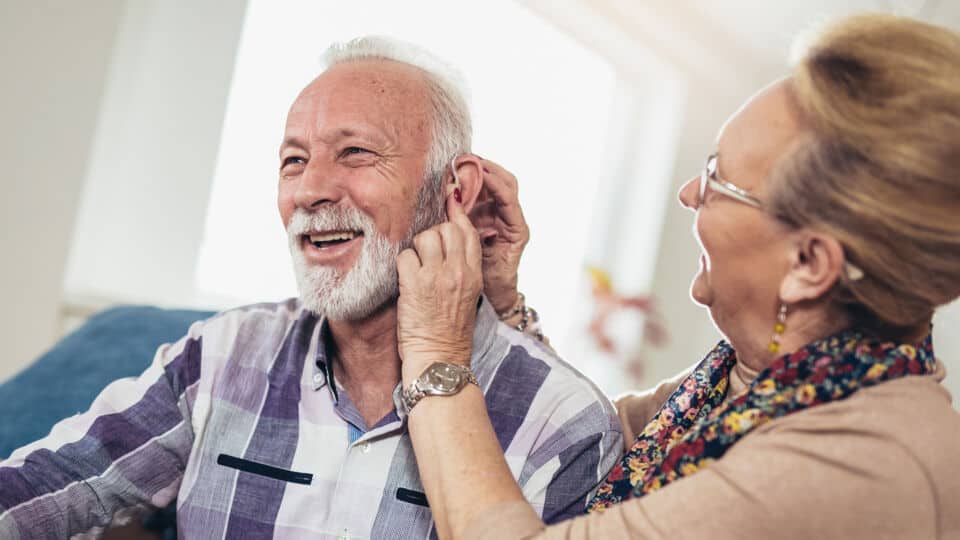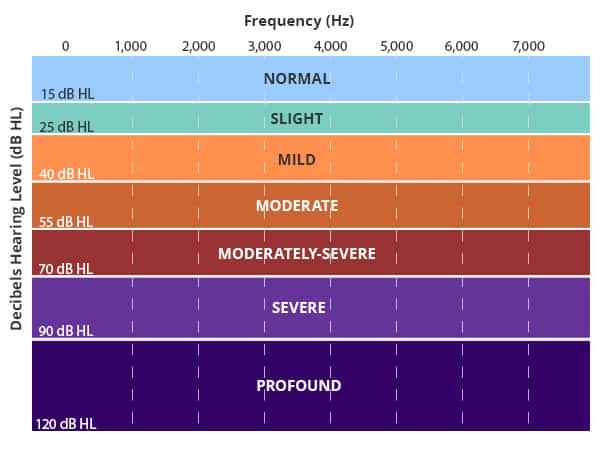How To Choose The Right Hearing Aids

Hearing loss can impact multiple aspects of your life. Communication with others becomes harder and a chore, adversely affecting your social, psychological, physical, and even cognitive well-being1.
If you have already taken the first crucial step by undergoing a hearing test to identify your hearing difficulties, read on to find out how to select a suitable hearing aid that will help to improve your social interactions with others, especially your loved ones.
Choosing the right hearing aids either for yourself or your loved one can be challenging. There is no one-size-fits-all solution and with the vast options of hearing aids today, this decision can be daunting. Therefore, it is important to understand the process and have a qualified audiologist or hearing care professional to guide you.
Determining the severity of hearing loss
Understanding the severity and type of hearing loss play an imperative role in determining the most suitable hearing aid. An audiologist will conduct tests to assess an individual’s hearing abilities and recommend appropriate devices.

- Normal and slight cases (0 to 25 dB HL) – No difficulty.
- Mild cases (25 to 40 dB HL) – Muffled soft speech but comprehensible in quiet environments .
- Moderate cases (40 to 55 dB HL) – Speech is difficult to understand even in quiet environments.
- Moderately – Severe cases (55 to 70 dB HL) – Speech is muddy, especially in large groups and requires amplification.
- Severe cases (70 to 90 dB HL) – Conversations at regular volume cannot be heard, and loud speech is difficult to understand.
- Profound cases (90 to 120 dB HL) – Most speech is inaudible, even with significant amplification.
Hearing aid is only good until moderately-severe. After this stage, cochler implant is recommended.
Other important aspects for choosing the right hearing aids
Lifestyle and daily activities
Consider the individual’s daily activities and lifestyle. Different hearing aids are designed to perform well in various environments, so it is essential to choose one that aligns with the user’s lifestyle and activities, and consider the environments where the user is usually in (e.g quiet spaces, busy offices, or social events).
Technological features
Assess the technological features of the hearing aid. Some individuals may benefit from wireless connectivity, smartphone compatibility, and advanced signal processing. Others may prefer simpler or traditional models.
Budget
Hearing aids vary in price. Consider the budget that you are comfortable with and choose the hearing aids that best fits your needs. Some insurance plans may include coverage that could blanket the costs, so do check with your insurance provider.
Follow-up and support
Ensure that the chosen hearing aids come with adequate follow-up support from the audiologist or hearing care professional. Regular checkups and adjustments may be necessary for optimal performance.
Work with qualified hearing care professionals for your hearing needs
Choosing the right hearing aids can be a complex process, and it is essential to consider various factors to ensure that the device meets your needs.
Do not hesitate to reach out to hearing care professionals to guide you through this process. It is important to consult with a qualified audiologist or hearing care professional to ensure the best possible outcome when choosing and fitting a hearing aid.
In view of World Hearing Day, our partners at The Hearing Centre will be offering hearing tests for members of the public from 28 March to 30 March 2024. Sign up here. Terms and conditions apply.
References
- Dalton, S. D., et. al. (2003). The Impact of Hearing Loss on Quality of Life in Older Adults. The Gerontologist. 43(5) p661–668.
- Valentinuzzi, M. E. (2020). Hearing Aid History: From Ear Trumpets to Digital Technology. IEEE Xplore. 11(5). p33-36. doi: I0.1109/MPULS.2020.3023833
- Aretha. (2021). Hearing Loss and the Audiogram Explained. Aretha Buys Audiology.
- Echt, K. V. & Saunders, G. H. (2014). Accommodating Dual Sensory Loss in Everyday Practice. Perspectives on Gerontology 19(1):4. doi:10.1044/gero19.1.04



